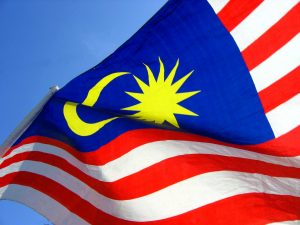Malaysian Prime Minister Muhyiddin Yassin’s ruling coalition has unexpectedly prevailed in a snap state election in Sabah, a result that is likely to shore up his teetering seven-month-old administration.
In the September 26 poll, Muhyiddin’s Gabungan Rakyat Sabah (GRS) coalition successfully overcame the Warisan Plus state government led by Chief Minister Shafie Apdal. Of the 73 seats contested, GRS coalition parties won 38, giving the alliance the simple majority it needs to form a new government in Malaysia’s easternmost state. Warisan Plus claimed 32 seats and independent candidates won the remaining three.
The victory will strengthen Muhyiddin’s political position following a leadership challenge from opposition leader Anwar Ibrahim, who announced last week he had the parliamentary majority needed to form government, effectively removing Muhyiddin from office. But Anwar refused to reveal the exact number of MPs backing him, while the king, who appoints the country’s premier, has postponed an appointment to see him due to ill health.
Muhyiddin came to power in March after backroom political shenanigans prompted the shock resignation of his predecessor, Mahathir Mohamad, and the collapse of Mahathir’s Pakatan Harapan coalition. Muhyiddin has since limped on with a slim, two-seat majority in parliament.
According to many observers, result in Sabah was driven by the need for federal support at a time of economic uncertainty amid the COVID-19 pandemic – in a region whose relationship with the far-off federal government has often been uneasy.
Like federal-state relations in other parts of the world – Scotland and the United Kingdom come to mind – local desires for increased autonomy often exist in tension with the need for financial support from the federal government.
While the incumbent Warisan Plus government ran on a “Sabah for Sabahans” platform, seeking to capitalize on long-standing resentments about overbearing federal authority, this seems to have been trumped by GRS’s promise of increased economic aid from Kuala Lumpur.
Dr Oh Ei Sun, a senior fellow at the Singapore Institute of International Affairs, told Channel News Asia that Muhyiddin’s message of federal support for local development goals had struck a chord among Sabahans. “The voters from Sabah were fully aware of this and they wanted development in the state. Message was received loud and clear,” Oh said.
Warisan Plus, meanwhile, failed to make inroads among Sabah’s non-Muslim indigenous communities, a crucial chunk of the electorate that ended up being split between various opposition parties.
The result is also a personal victory for the prime minister, given how heavily he featured prominently in the GRS campaign. As James Chin of the University of Tasmania wrote in these pages last week, Muhyidding’s Perikatan Nasional (PN) coalition, a major constituent of GRS, used the leader’s face on its election billboards (often accompanied by the word “Abah,” or father), even though he was not personally on the ballot in Sabah. Meanwhile, Muhyiddin campaigned for days across the state, shopping around promises of more jobs, funds to develop infrastructure and support for poor residents.
While the outcome of the poll does not directly affect the balance of power at the national level, it is likely to complicate Anwar’s ongoing power bid and stabilize Muhyiddin’s PN coalition. Muhyiddin said earlier that victory in Sabah could pave the way for an early national election aimed at winning a popular mandate. With Saturday’s result, Malaysia moved one step closer to a snap general election.

































